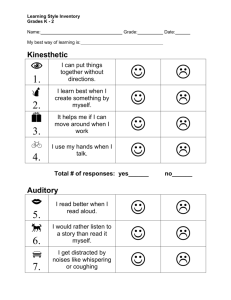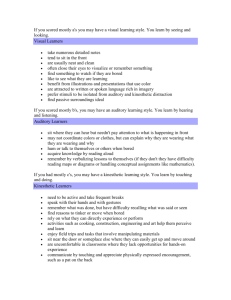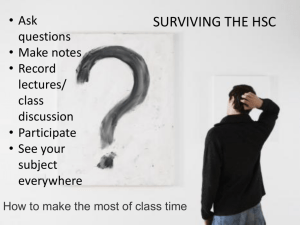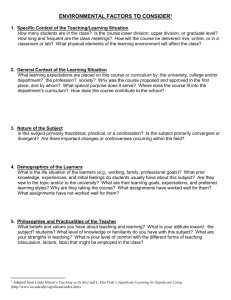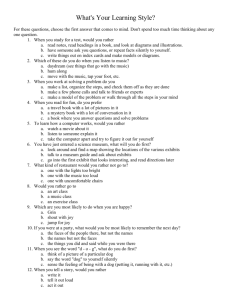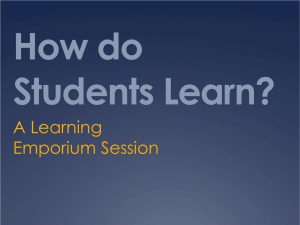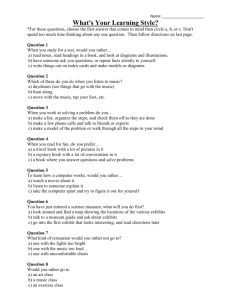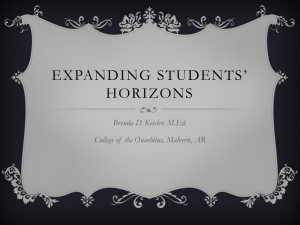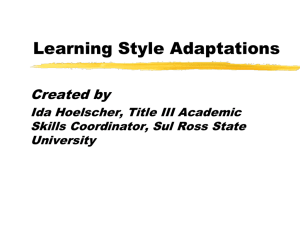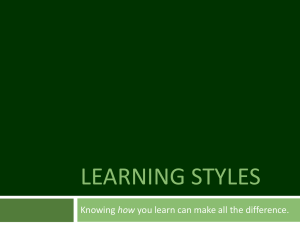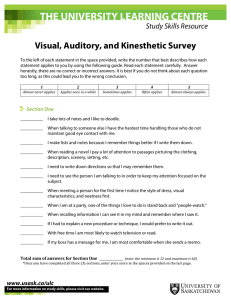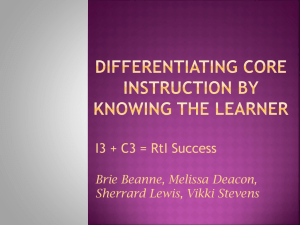Parent Workshop Organization and Study Skills
advertisement
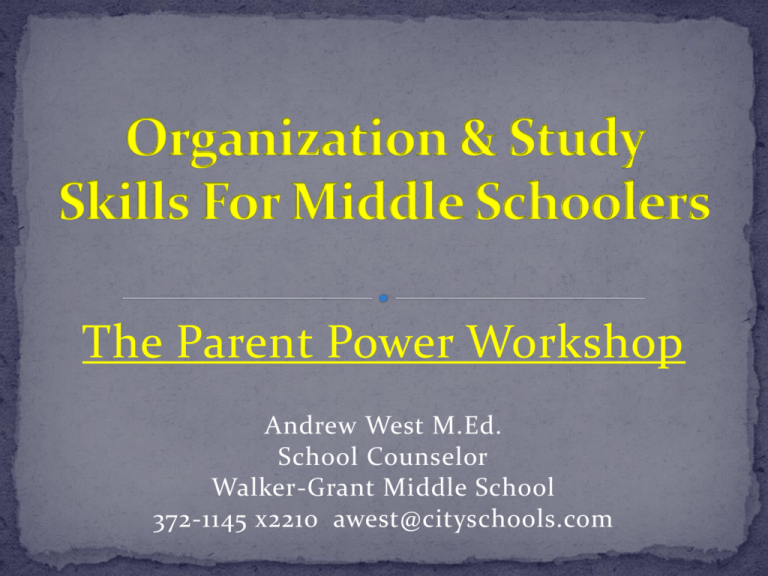
The Parent Power Workshop Andrew West M.Ed. School Counselor Walker-Grant Middle School 372-1145 x2210 awest@cityschools.com Part 1: Organization Part 2: Study Skills Part 3: Knowing Assignments & Grades Part 4: Motivation Part 5: Parent Resources Part 6: Questions or Comments But first… Better Grades! Less Stress! More Free Time! Positive Self-Esteem! Some students carry their bags from class to class. However, some carry everything with them everywhere, all the time! This may not be efficient for them. *No loose papers! Loose papers should always be in the binder or folder, or kept at home. YIKES! AHHH! Some students may only use for coat storage. Buy or make a shelving system. Draw a “locker map” and keep it inside the locker door. In case things get messy, refer back to the map to re-organize. Use magnets to hang up notes/reminders or photos. *No loose papers! Yikes! Aaah! Teaches Time Management! Helps with setting goals. Tracks immediate deadlines and long-term ones. Can use for personal events and info. Calculate time needed to complete work. Block out study time in your schedule. Paper Management for older school papers Accordion folders, hanging folders, pocket cases, bins or binders Container for writing utensils & other tools Flash cards w/ rubber bands, ziploc bags or card boxes Desk, table or other hard surface Good lighting Mellow music (works for some, but not all) Away from distractions: No TV. No cellphone. No computer. Different styles of learning require different styles of studying. 1. Visual Learners – Learn best by seeing 2. Auditory Learners – Learn best hearing 3. Kinesthetic Learners – Learn best by doing Have your child take a Learning Style Quiz to find out what type of learner he/she is. These can be found online and vary in length. Next, have him/her study in ways which cater to that style. Read & Re-read - Most common, not always most effective. VISUAL Read & Re-read out loud – VISUAL & AUDITORY Teach someone else – VISUAL & AUDITORY & KINESTHETIC Study Buddies - VISUAL, AUDITORY & KINESTHETIC -Use flash cards, play charades or play Pictionary -May not be most efficient if not focused Hit all 3 Learning Styles! Great for vocab., definitions, math equations/examples Used solo or with study buddies Many different games can be played Can make your own or use some websites. Most kids don’t use them! WHY: “I don’t have any.” “I have to make them before I can study.” “They’re messy.” Part 3: Knowing Assignments & Grades 1. Use the teacher websites to find out what your child is learning. 2. Use your child’s agenda to see what assignments are given. 3. Use Parent Portal to see the results of those assignments. (Passwords obtained at main office). *Great Idea: Give your child his/her Parent Portal password so he/she can track personal progress. The Speech 2. Goal Setting 3. Incentives & Consequences 4. Role Model 5. Hold Accountable 6. Praise 1. 1:1 talk without interruptions Be positive Acknowledge it won’t be easy, but you are there to help – NOT to do it for them! Goal-Setting Must be important personally Must be within his/her power to make it happen Must be something reasonably achievable Must be clearly defined w/ specific plan of action Bribery doesn’t usually work. Use Parent Portal and/or contact teachers for reinforcement. Middle Schoolers are super-social! Loss of time or increased time being with or communicating with friends is usually pretty impactful. Pay the bills Clean & Organize! Read the paper/book Do your own homework Do some chores Fill in your own agenda or calendar When you’re both done, talk about what you’ve accomplished. Consistency = your goal! It may get worse before it gets better. Ask family/friends for support. Remember, you are teaching perseverance, too! Remember, changing habits takes time and dedication on your child’s part and yours; it’s not an event, it’s a process. Check in regularly, but try not to nag. Seek and point out the small successes. Praise the effort! Utilize your child’s teachers Call in family support Use internet/library (Use reputable sources) Refer to handout
